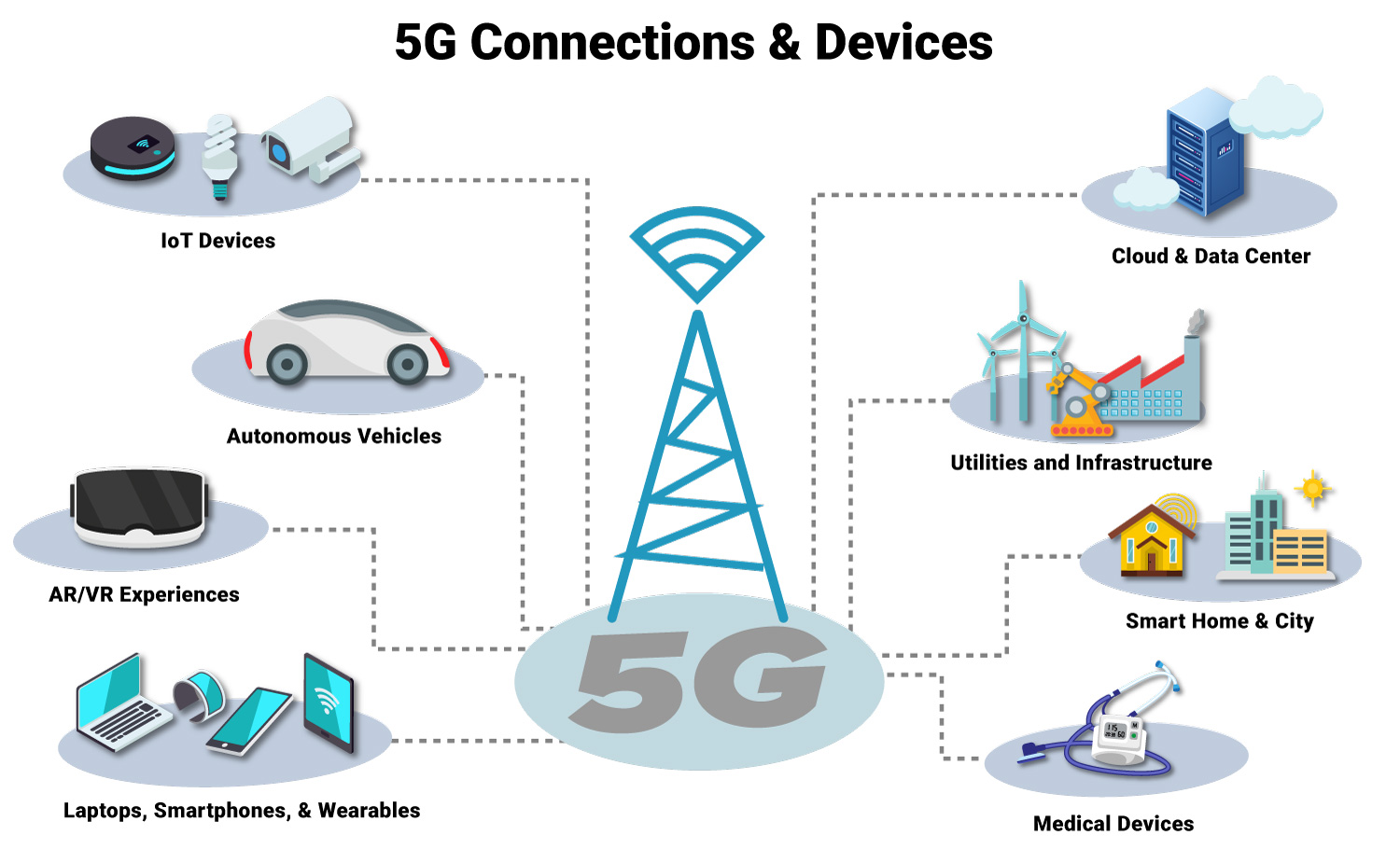Shop At Haya: Your Ultimate Shopping Guide
Discover the best shopping tips, trends, and deals for a smarter buying experience.
5G Technology: Soon Your Microwave Will Surf the Web Too!
Discover how 5G technology will revolutionize your home appliances—your microwave could soon be surfing the web! Don't miss out!
How 5G Technology is Transforming Everyday Appliances
The advent of 5G technology is revolutionizing the way we interact with our everyday appliances. With its lightning-fast speeds and ultra-reliable low latency, 5G enables devices to communicate more effectively than ever before. For instance, smart fridges equipped with 5G can monitor food supplies and suggest recipes based on available ingredients, enhancing convenience and minimizing waste. Moreover, this technology allows appliances to receive real-time updates, ensuring they function optimally at all times, which ultimately contributes to energy efficiency.
Beyond just connectivity, 5G technology facilitates the emergence of innovative smart home ecosystems. Appliances such as robotic vacuum cleaners, washing machines, and thermostats can now operate in perfect harmony, responding to user commands and adapting to preferences with unprecedented precision. This interconnectedness not only streamlines household tasks but also enhances security through features like remote monitoring and control. As more devices become 5G-enabled, the potential for increased automation and enhanced user experience is truly limitless, paving the way for a smarter, more efficient home.

The Future of Smart Kitchens: Will Your Microwave Join the Internet of Things?
The concept of a smart kitchen is rapidly evolving, with the Internet of Things (IoT) becoming an integral part of modern culinary experiences. Imagine walking into your kitchen and having all your devices seamlessly communicate with each other. This interconnectedness not only enhances convenience but also elevates cooking efficiency. For instance, microwaves that can remotely be controlled via smartphone apps are just the beginning. These appliances can receive cooking instructions directly from recipe apps, adjust cooking times, and even notify you when your food is ready. As more people embrace smart home technology, the evolution of smart kitchen appliances is expected to revolutionize home cooking.
In the near future, it's likely that the humble microwave will become an essential part of the IoT, potentially offering features like voice activation and integration with other smart devices. This means you could ask your microwave to reheat leftovers while you prepare a fresh meal on a smart stove. The benefits extend beyond convenience; appliances that monitor energy usage and suggest optimal cooking settings can lead to increased efficiency and reduced electricity bills. As kitchen technology continues to advance, the question remains: will the microwave truly become a smart appliance, or will it just remain a standalone device amidst a sea of innovations?
What Are the Implications of 5G Connectivity for Household Devices?
The rollout of 5G connectivity is set to revolutionize the way we interact with household devices, enhancing their functionality and performance. With significantly faster speeds and lower latency, 5G allows for seamless data transfer between devices, facilitating real-time communication. For instance, smart home systems can process commands instantly, enabling homeowners to control lighting, temperature, and security systems with unprecedented responsiveness. This advancement not only enhances user experience but also paves the way for more complex applications, such as remote monitoring and management of household appliances.
Moreover, the implications of 5G connectivity extend beyond mere convenience. As household devices become increasingly interconnected through the Internet of Things (IoT), the data they generate can provide valuable insights into usage patterns and energy consumption. This data can be leveraged to optimize energy efficiency and reduce costs. However, this interconnectivity also raises concerns regarding security and privacy, making it essential to implement robust safeguards to protect user data. Ultimately, the transition to 5G connectivity represents a significant shift in the household landscape, promising a more efficient and intelligent home environment.